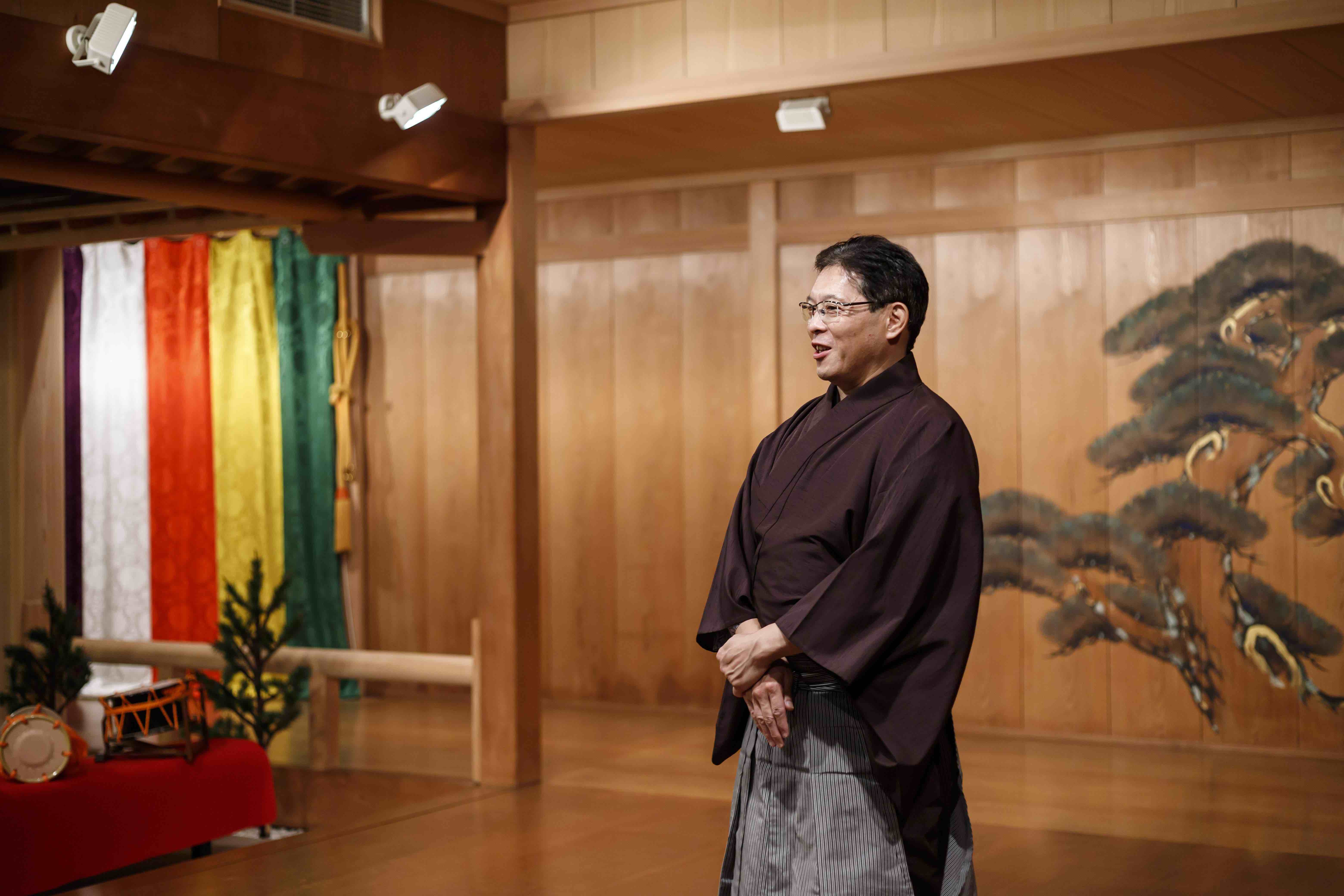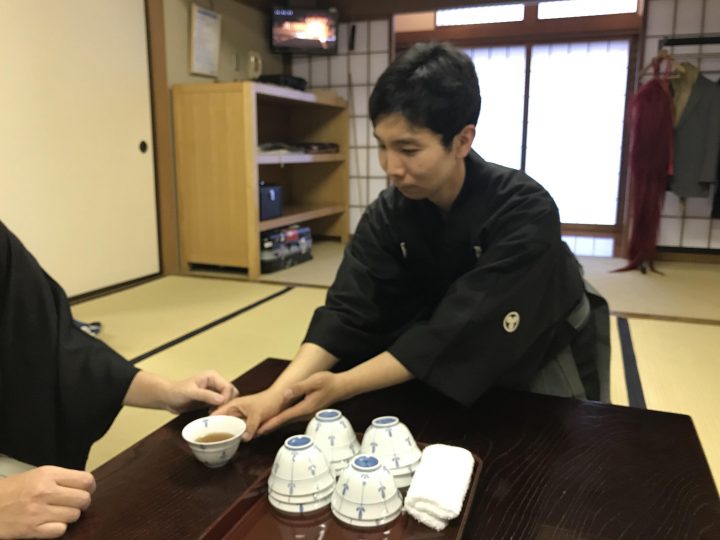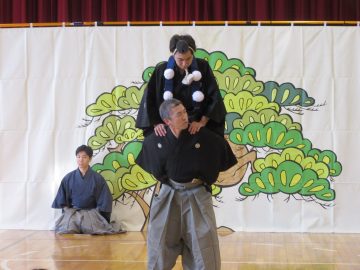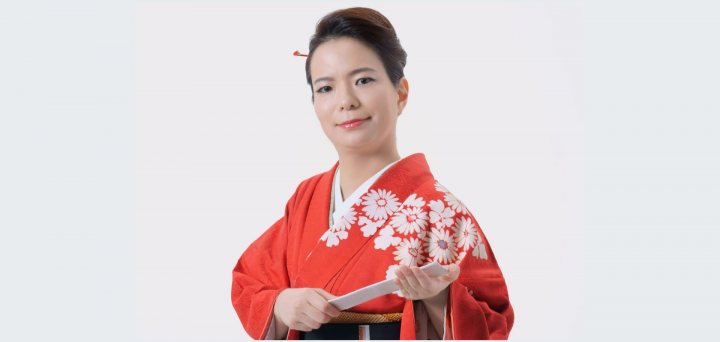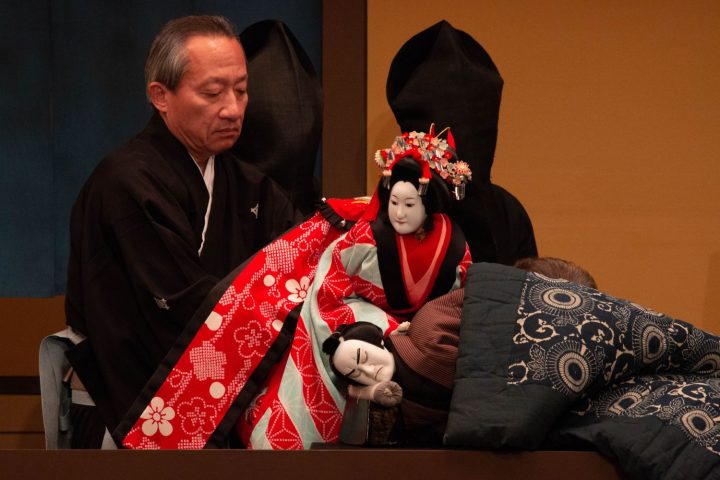Overcoming the COVID-19 pandemic and moving on to a new stage! An interview with Kanta Nakamori of Kamakura Noh Theatre
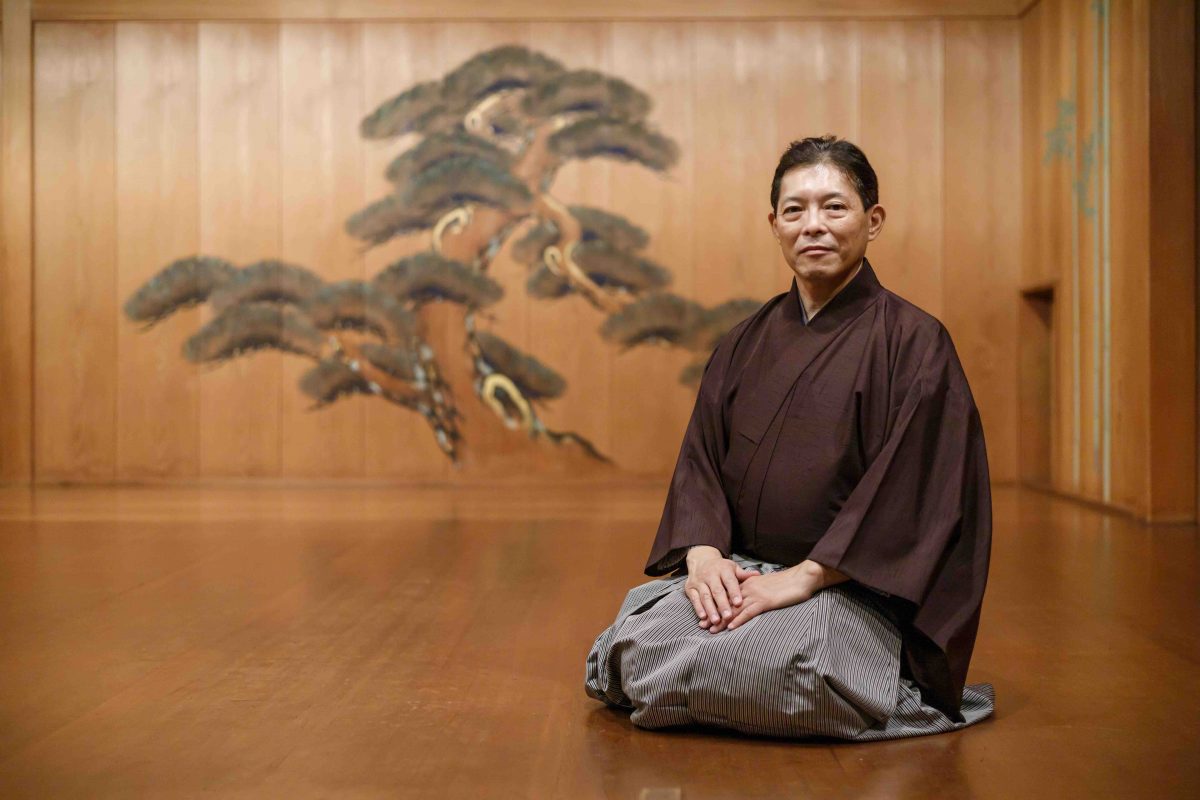
The year 2020 was a year in which the entire world came to a standstill due to an unprecedented disaster. With almost all performances canceled, how did people involved in the performing arts overcome this crisis?
We spoke with Nakamori Kanta of Kamakura Noh Stage, who is based in the world of traditional performing arts but is actively involved in crowdfunding and Zoom rehearsals, opening up new horizons.
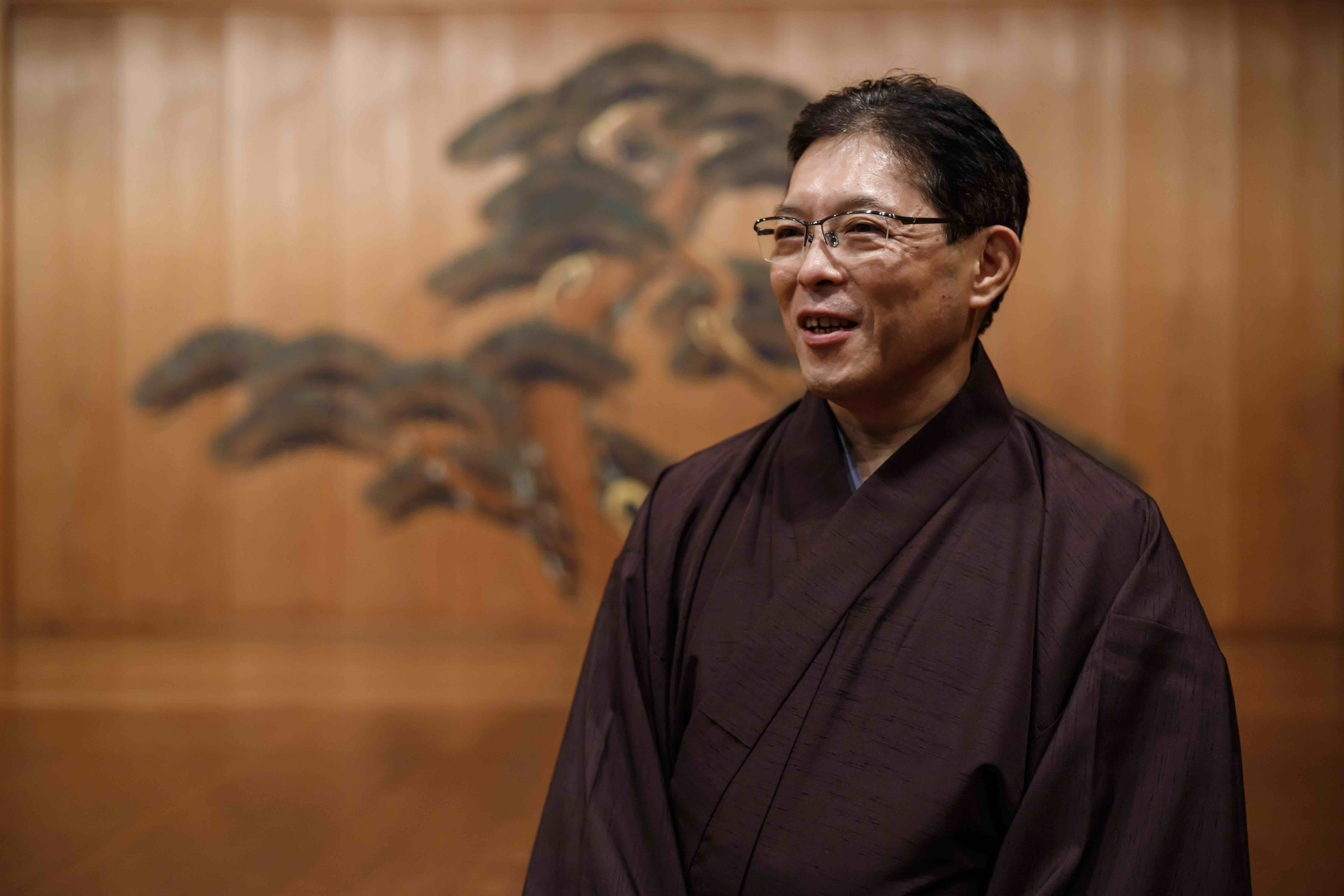
I understand that the current COVID-19 pandemic has been a difficult time for those involved in traditional performing arts.
As for us, our last performance on March 12th was a complete halt. After verifying the effectiveness of infection prevention measures and formulating prevention guidelines, we were able to utilize various subsidies and finally resume performances on September 22nd, but this meant that we were completely unable to carry out any activities for around six months. Until the state of emergency was lifted in May, we also suspended our students' lessons, so our income was almost zero. It was a truly difficult time.
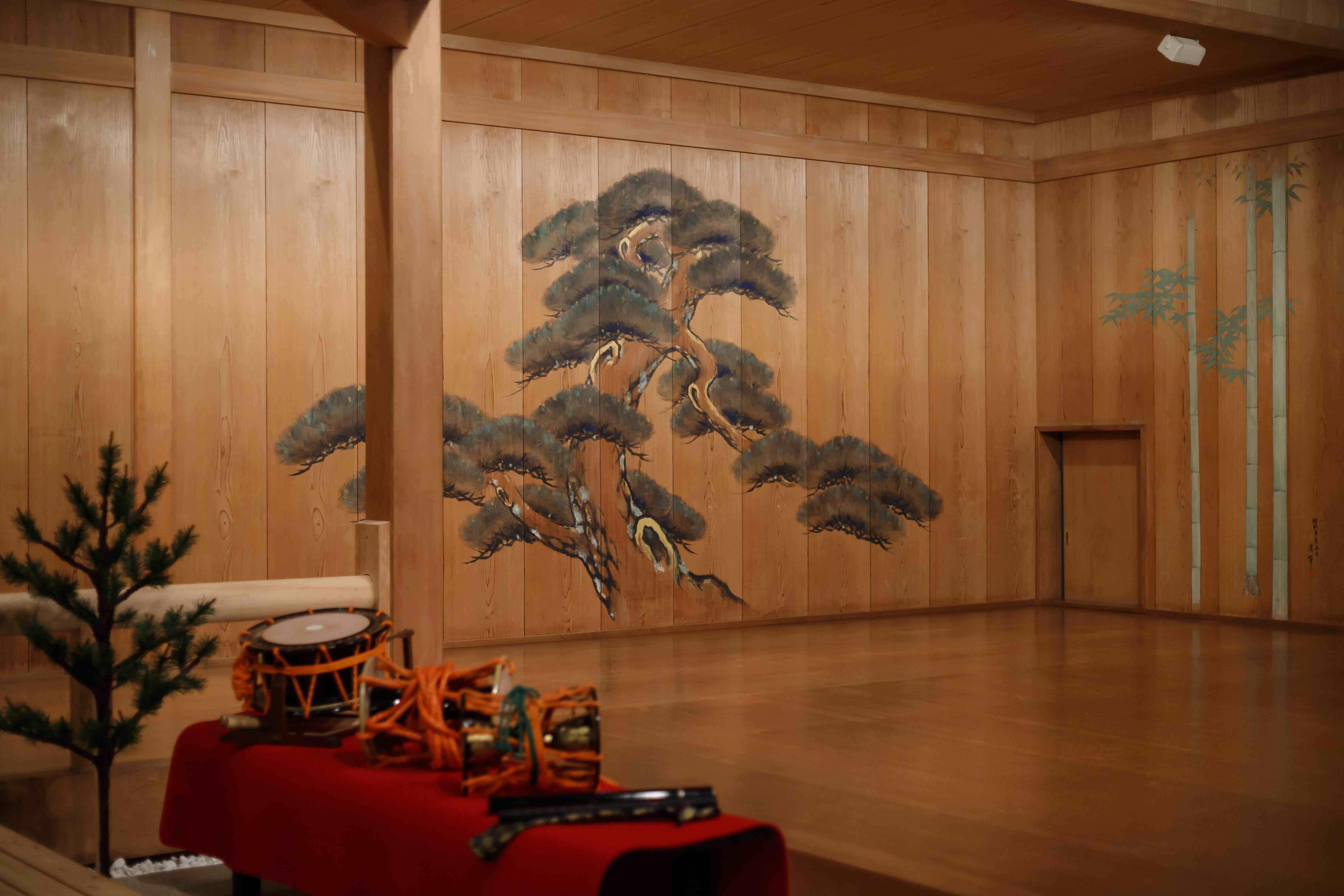
Rather than just passing through that period in silence, it seems you tried a variety of new things.
I had plenty of time, so I started a YouTube channel. The content mainly focuses on explanations of the stage, Noh masks, and costumes. I hope that this will be an opportunity to spark an interest in Noh, and motivate people to attend a performance or start taking lessons once the COVID-19 pandemic is over.
I've actually received inquiries from several people, so I've started holding lessons via Zoom. Some people have even contacted me from London. There's a time lag when you're online, so it can be difficult, but I'm still giving lessons to people in London twice a month.
There are some organizations that distribute videos of their performances for free, but I'm not doing that for now because I feel that it could put me in a difficult position in the future.
Traditional performing arts and online events seem like a somewhat unexpected combination.
That's not true (laughs). I also participate in online drinking parties, and that's where I get new information and meet new customers. I originally started using Facebook at the recommendation of a friend, and it's been about 10 years now. To be honest, it was a pain at first, and I started reluctantly (laughs), but now I have nearly 5,000 "friends."
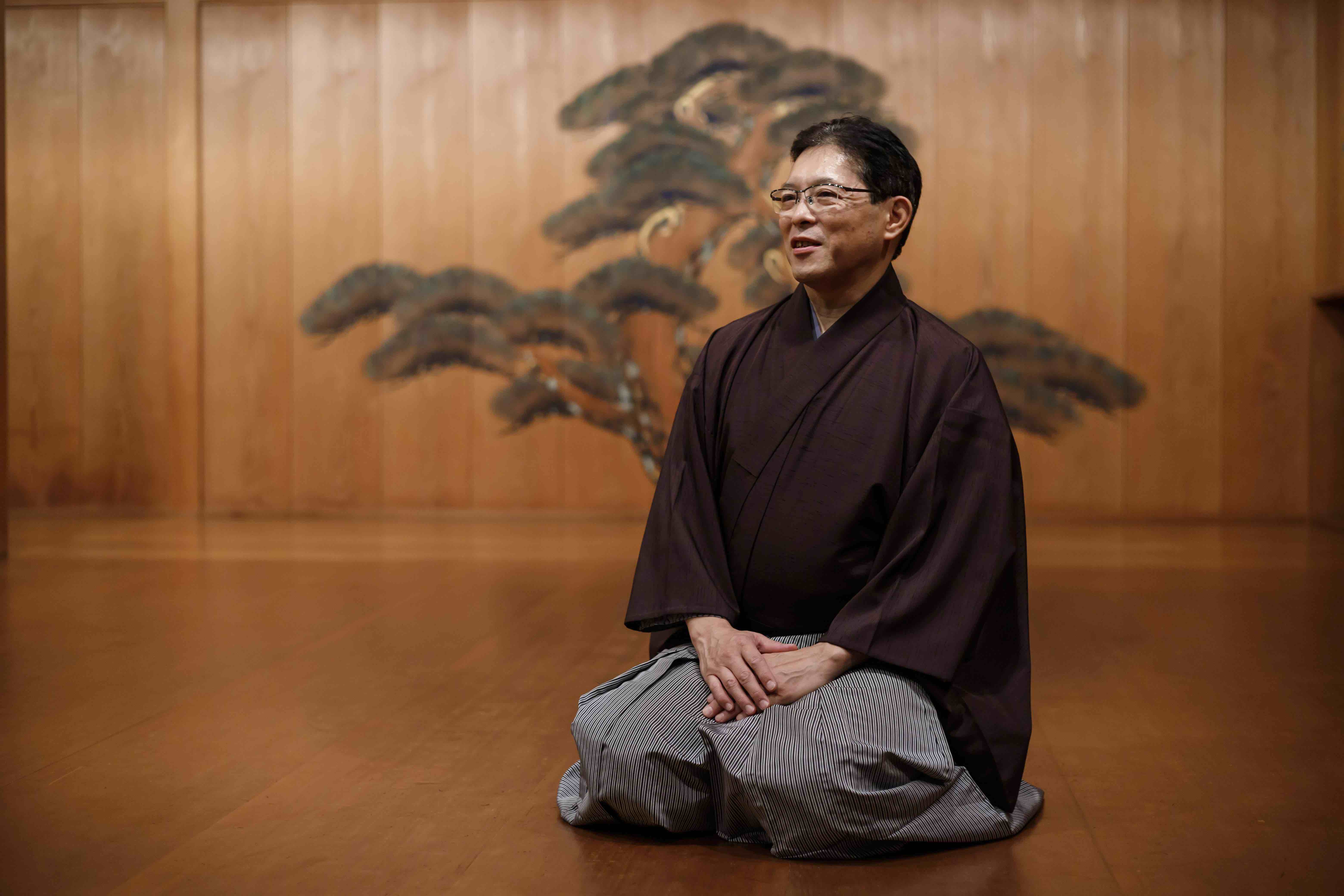
This time, they also worked on crowdfunding (CF ).
The opportunity to appear in the commercial came about when we were approached by the Yomiuri Shimbun.
* Click here for the Kamakura Noh Stage commercial !
A journalist I know well saw me posting about my plight on Facebook and offered me a lot of support. I received support from many people, including my high school classmates and Facebook friends, and I was so happy I could cry.
This is not limited to traditional performing arts, but there is a belief that "it's uncool to complain," so it's not that I had no hesitation in taking on the CF project. But if you're really in trouble, you should be honest and say, "Please help me." If you don't make yourself known, your true situation won't be conveyed.
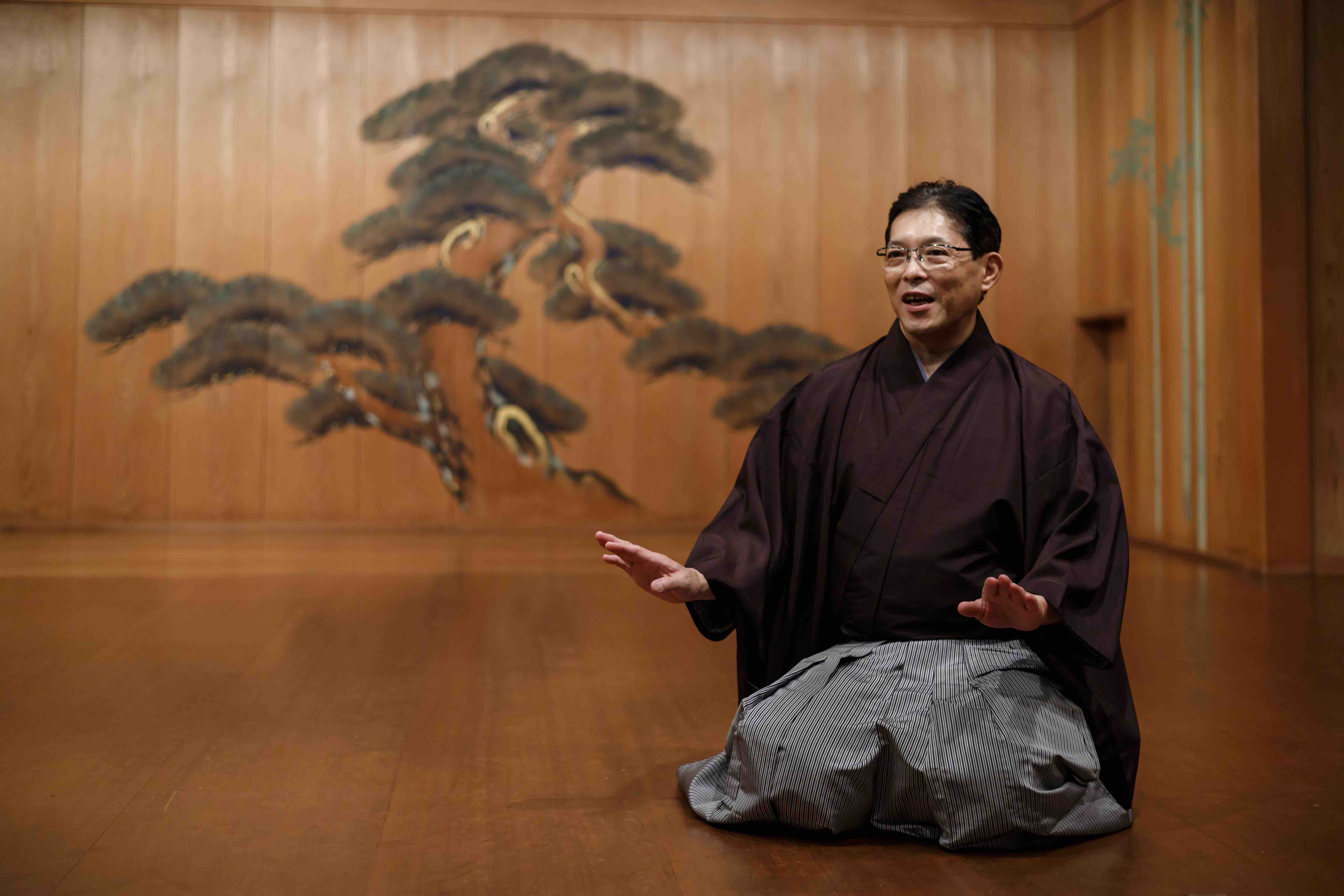
We also ran a crowdfunding campaign for Kamacon , a volunteer group based in Kamakura.
They came up with the idea that they could support the Kamakura Noh Stage by using its stage and paying a usage fee, and planned the "Machi noh Noh Performing Arts Festival" in August. Twelve groups performed, including not only traditional performers but also jazz guitarists, piano players, violinists, jugglers, and kamishibai (paper theater) performers, and the performances were streamed on YouTube. This led to an increase in the number of subscribers to the YouTube channel, and we were also able to demonstrate the wide range of uses for the Kamakura Noh Stage, which was a great success.
In the past, Noh and Kyogen were seen as something only "those who understand" could watch, but this would mean being left behind by the times. If you don't sow the seeds, you won't reap the rewards. In order to sow the seeds, outreach activities such as student appreciation groups are important, so I am truly grateful that Kanagawa Prefecture and Kamakura City subsidize these activities.
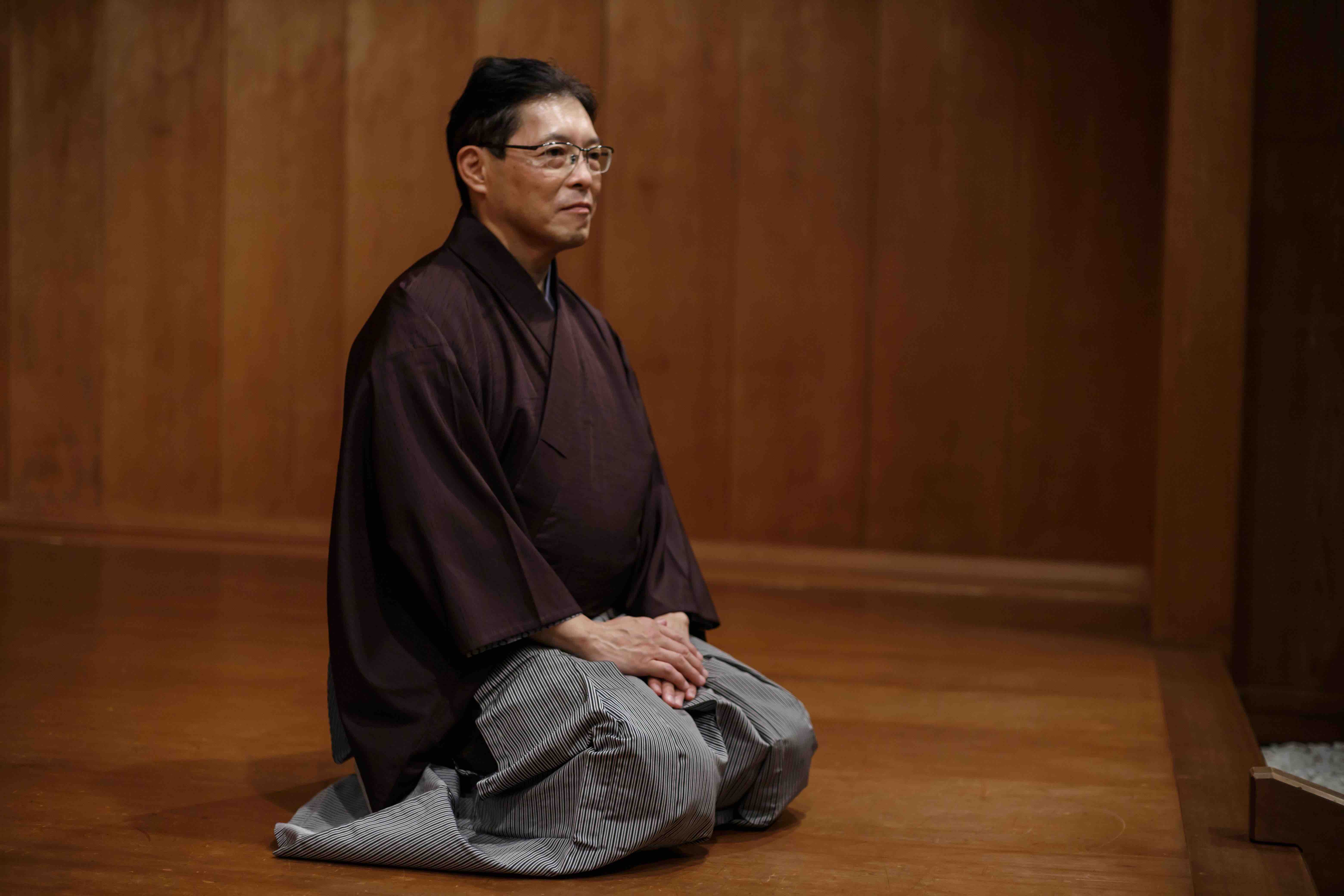
I have the impression that the Kamakura Noh Stage is proactive in trying new things.
At the Kamakura Noh Stage, subtitles in both Japanese and English have been projected onto the side of the stage for some time. At first, there was a lot of negative feedback, but when we actually tried it out, it was well received by the audience. Perhaps it was a good idea to limit it to simple explanations that could be read easily while watching the performance, rather than a full translation of the chants. We are also already considering changing the lighting to LED (although there are issues to consider, such as the costume colors appearing different), and in the future we would like to try incorporating projection mapping.
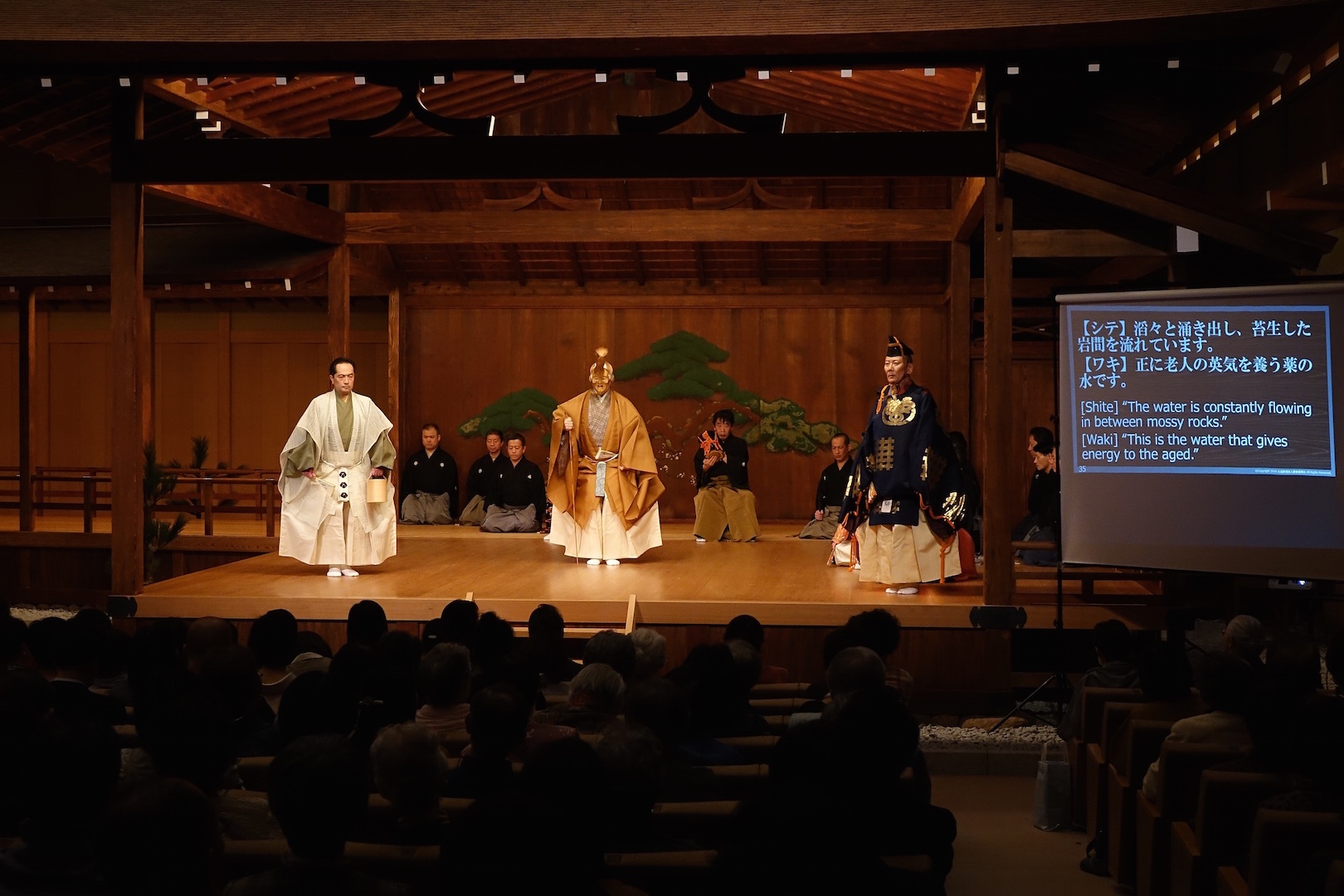 *From a performance in November 2018. Image courtesy of Kamakura Noh Stage
*From a performance in November 2018. Image courtesy of Kamakura Noh StageAlthough the COVID-19 pandemic was a major disaster, it has significantly increased the number of times we have been featured in the media, and our ability to respond has also improved. We would like to take this as an opportunity and actively consider acquiring sponsors in the future. Since sponsor names are printed on the theater's stage curtains, it would be a good idea to take an extreme approach and print the sponsor's name next to the pine tree on the panel (laughs).
I believe that in order for Noh and Kyogen to continue into the future, it is necessary to treasure tradition while also taking on new challenges. I would like to exchange ideas with a wide range of people and create performances that will please our audiences.
